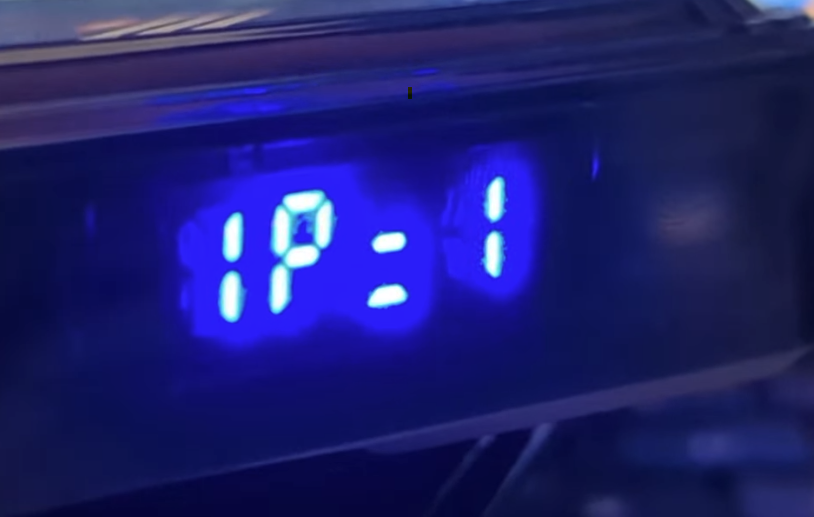Active threads
Showing topics posted in for the last 365 days.
- Today
-
I am not sure if I am using the git command correctly to get mpv-0.3.9 with PR14690.. Please help roberto@orangepizero3:~$ mkdir mpv-official roberto@orangepizero3:~$ cd mpv-official/ roberto@orangepizero3:~/mpv-official$ git clone https://github.com/mpv-player/mpv roberto@orangepizero3:~/mpv-official$ cd mpv roberto@orangepizero3:~/mpv-official/mpv$ git checkout -b release/0.39 roberto@orangepizero3:~/mpv-official/mpv$ git fetch origin pull/14690/head:0.39 roberto@orangepizero3:~/mpv-official/mpv$ nano video/out/gpu/hwdec.c ... I don't see the added changes in the hwdec.c file
-
i've updated the image to include info on screen like IP / cpu usage / ram usage (in %) any software can write to /tmp/screen to change content you can download here
-
@mitu I'm not sure how to use that program it only plays white noise but it comes through hdmi. I can also play wav files using aplay on command line.
-
I've recently switched my FriendlyElec NanoPC-T6 to use the Armbian Linux v6.12 server image, built on the 24th of May 2025. Booting of SD works fine, but when installing to the eMMC chip some I/O errors can be found in the kernel logs: [ 151.814773] I/O error, dev mmcblk0, sector 176 op 0x0:(READ) flags 0x80700 phys_seg 10 prio class 2 This happens when under heavy I/O load - e.g. performing an apt upgrade. I ran badblocks over the entire eMMC chip without issue - but that puts a much lower strain on the eMMC. Therefore, i'm convinced that the eMMC chip itself is fine. Poking around a bit, this seems to be because the A3A444 eMMC chip which some NanoPC-T6 SBCs shipped with do not support HS400 mode properly. There is an OpenWRT bug report about this, which fixed the issue by patching the dtsi to force HS200 mode. My kernel logs confirm that I have the A3A444 eMMC chip, and that it is currently running in HS400 mode: sudo dmesg -e | grep -i mmc [ +0.015143] mmc0: SDHCI controller on fe2e0000.mmc [fe2e0000.mmc] using ADMA [ +0.051640] dwmmc_rockchip fe2c0000.mmc: IDMAC supports 32-bit address mode. [ +0.000020] dwmmc_rockchip fe2c0000.mmc: Using internal DMA controller. [ +0.000008] dwmmc_rockchip fe2c0000.mmc: Version ID is 270a [ +0.000025] dwmmc_rockchip fe2c0000.mmc: DW MMC controller at irq 91,32 bit host data width,256 deep fifo [ +0.000210] dwmmc_rockchip fe2c0000.mmc: Got CD GPIO [ +0.012806] mmc_host mmc1: Bus speed (slot 0) = 400000Hz (slot req 400000Hz, actual 400000HZ div = 0) [ +0.007795] mmc0: new HS400 Enhanced strobe MMC card at address 0001 [ +0.000906] mmcblk0: mmc0:0001 A3A444 230 GiB [ +0.004124] mmcblk0: p1 [ +0.000720] mmcblk0boot0: mmc0:0001 A3A444 4.00 MiB [ +0.001831] mmcblk0boot1: mmc0:0001 A3A444 4.00 MiB [ +0.001742] mmcblk0rpmb: mmc0:0001 A3A444 4.00 MiB, chardev (243:0) [ +0.227497] EXT4-fs (mmcblk0p1): mounted filesystem a4f48be8-f667-4cac-a9a7-61ce8f9035d1 ro with ordered data mode. Quota mode: none. [ +0.021022] EXT4-fs (mmcblk0p1): re-mounted a4f48be8-f667-4cac-a9a7-61ce8f9035d1 r/w. I've tried to use a user device overlay to use mmc-hs200-1_8v, but this doesn't appear to work. I think this is because Device Overlays can only replace elements or add to the tree? i.e. I cannot use an overlay to remove the existing mmc-hs400-1_8v; and mmc-hs400-enhanced-strobe; entries. Is there a way to do this with a user device overlay, or will I need to try to add a similar patch to OpenWRT's one in the kernel? This is the first time i've used Armbian so i'm a little unsure about how i'd go about doing the latter. I've found a similar report of this issue from a couple of years ago by @SuperKali, albeit with no resolution. However, I can see they're now listed as one of the community maintainers for this board so i'm hoping it's OK to mention them in this thread to see if they know how best to force HS200 mode for the eMMC!
-
Type in the command: lsblk There, addressing the nvme should be obvious.
-
Hello everyone, I got a tv box: J15 pro with rk3328 inside I tried the trunk version but it failed to boot then I tried the achived 23.11.1 version, It can boot normally, but if i do a full upgrade , the box failed to boot again. I think maybe the box do not compatible with kernel 6.12 so i tried to hold the 3 packages: linux-dtb-current-rockchip64 linux-image-current-rockchip64 linux-u-boot-rk3318-box-current and then upgrade , It works what can i do to help to fix the compatible problem? ps lshw shows the box comes with a wifi chip: rtl8189es
-
Small guide for fixing Ethernet on the latest Armbian. 1. Make sure you have the correct device: cat /proc/device-tree/model → OrangePi 3 LTS 2. Decompile the dtb to dts: dtc -I dtb -O dts /boot/dtb/allwinner/sun50i-h6-orangepi-3-lts.dtb -o ./sun50i-h6-orangepi-3-lts.dts 3. Check the correct pins (yours may differ): grep -i reset-gpio sun50i-h6-orangepi-3-lts.dts | head -n 1 → reset-gpios = <0x1e 0x03 0x0e 0x01>; 4. Create the file sun50i-h6-ethernet.dts. Use the provided template and substitute your pin values. My file for example: /dts-v1/; /plugin/; / { compatible = "allwinner,sun50i-h6"; fragment@0 { target = <&emac>; __overlay__ { snps,reset-gpio = <0x1e 0x03 0x0e 0x01>; snps,reset-delays-us = <0 10000 1000000>; snps,reset-active-low; mdio { ethernet-phy@1 { reset-gpios; reset-assert-us; reset-deassert-us; }; }; }; }; }; 5. Add your overlay: armbian-add-overlay sun50i-h6-ethernet.dts 6. Reboot and enjoy working Ethernet: reboot
-
Coming from the future, I created a fork with a patched version of moonlight-qt that works with Armbian 25.8.1 using vendor kernel 6.1.115 and Gnome as well as the mali blob g610-g24p0-wayland-gbm and of course, rkmpp. The performance is great. In a nutshell, what I actually patched were the direct OpenGL calls since these were not directly exposed in OpenGL ES that the mali blob uses.
-

We are ready to offer a Bountysource donation to Armbian
m33ts4k0z replied to maximumsettings's topic in Orange Pi 5
I ended up creating a patched fork of moonlight-qt that works with the mali blob and rkmpp with excellent performance. -
Hi community, I am experiencing an issue reinstalling Armbian on my Helios64. I tried all methods including booting from an SD card, flashing the image onto the eMMC directly but every time I boot, I get kernel panic (flashing status light). I also can't connect to the USB via TTY to diagnose the issue. My macbook keeps detecting the /dev/tty.usbserial-DT03OEIM and the next second it is gone. I wanted to install the original Buster image but I cannot find it anymore in any of the archives. It's kind of disappointing because what's the purpose of an archive then if not hold on to an image for a few years. My current theories are limited and I can only think that the newer images might not have the correct drivers, but as I said, I can't connect via TTY to even observe the boot log. I tried pretty much everything at this point: all of the images available (devbian, ubuntu), all flavors of them (minimal, omv). Booting into U-boot, Setting P10, P11 jumpers etc, etc. Can anyone help?
- Yesterday
-
I try installing Debian Trixie using the installer by 2 differents approachs but It didn’t succeeds. 1) using a bootable USB key with ARMhf (Generic version), found on Debian web site 2) Has described in DEBIAN ARMhf installation manual, using hd-media to include the asus c100p correct .dtb (tree) files during the creation of the external USB. Regardless the method, the USB key with intaller, is not recognized, when typing CTRL+U, in developper mode. The Chromebook didn’t see the key, but it work well with Zutchi group, but not here. I only received a serie of bibs, when doing CTRL+U. I also try building an ARMBIAN image, but, Asus C100P is not available in choices, and I look in EXPERT mode, not supported, but didn’t find a generic ARMhf file having features: RK3288 processor, 4Gb of RAM, 16Gb of emmc, 2 x USB, USBc, hdmi, wifi, so I didn’t complete the process. I am open to suggestions, but my next trial is using ‘dd’ and install the ‘Velvet trixie’ image found on GitHub directly on emmc ‘drive’, if not succeed, I will try Archlinuxarm with PostmarketOS. Thanks for your comments and suggestions.
-
@Tomi Skies try the x96q images https://github.com/NickAlilovic/build/releases/tag/20250306
-
This is on minimal. So no xorg or Wayland. But I use xorg normally. I generally start with minimal and work up. I despise both Ubuntu and gnome. You won't find those on any computer I own. I compromise with xfce for the little time I might use it before I have everything set up. I've just reversed direction and installed debian xfce stable. Mostly to avoid the hassle of replacing net plan with network manager. A PIA. I can uninstall all the stuff I don't like that comes with the desktop version. Probably easier. With xfce there are two screens, but the one on the built in screen seems to be double the size it should be. I can only see half the dog. I can live with that for now. At least it uses the Fullscreen of the HDMI.
-
Couple of data points that may be helpful. Platform: BTT PI v1.2 D/C 2023.11.8 with the U2C CAN board Distro: Armbian 25.8.1 Bookworm Kernel: 6.12.43-current-sunxi64 Overlays: spidev0_0 1. Adding a sleep 5 hack did not work for me, however what does *seem* to work is inserting the following line to /etc/netplan/30-wifis-dhcp.yaml activation-mode: manual WiFi was still activated (which may be another bug) for at least 3 cold boots in a row (didn't have time to test more thoroughly). Here's a pastebin link from right after one such boot - https://paste.armbian.com/umijapukiy 2. The error from wpa_supplicant is CTRL-EVENT-SCAN-FAILED ret=-1 retry=1 .Same error code (-1) is also reported when attempting a manual scan pi@jubilee:~$ sudo iw wlan1 scan command failed: Operation not permitted (-1) 3. Broken state of the WiFi driver seems to be correlated with mmc errors in dmesg [ 11.490708] sunxi-mmc 4021000.mmc: data error, sending stop command [ 11.490745] sunxi-mmc 4021000.mmc: send stop command failed [ 11.490856] sunxi-mmc 4021000.mmc: data error, sending stop command [ 11.490880] sunxi-mmc 4021000.mmc: send stop command failed [ 11.491071] sunxi-mmc 4021000.mmc: data error, sending stop command [ 11.491098] sunxi-mmc 4021000.mmc: send stop command failed [ 11.491224] sunxi-mmc 4021000.mmc: data error, sending stop command [ 11.491248] sunxi-mmc 4021000.mmc: send stop command failed These are not present if wifi was activated successfully. Here's a pastebin link from right after such boot - https://paste.armbian.com/xovixuniti EDIT: Ran armbianmonitor -c overnight and the SD card seems fine The results from testing /dev/mmcblk0p2 (ext4): Data OK: 111.37 GB (233561400 sectors) Data LOST: 0.00 Byte (0 sectors) Average writing speed: 18.41 MB/s Average reading speed: 22.74 MB/s ... Health summary: OK 3. Reloading the kernel driver (8189fs) when it is already in a broken state is very slow and provokes a slew of mmc errors $ sudo /sbin/rmmod 8189fs pi@jubilee:~$ time sudo /sbin/modprobe 8189fs real 2m15.835s user 0m0.008s sys 0m0.048s $ dmesg .... [ 673.262192] sunxi-mmc 4021000.mmc: data error, sending stop command [ 673.262286] sunxi-mmc 4021000.mmc: data error, sending stop command [ 673.262379] sunxi-mmc 4021000.mmc: data error, sending stop command [ 673.262471] sunxi-mmc 4021000.mmc: data error, sending stop command [ 673.262563] sunxi-mmc 4021000.mmc: data error, sending stop command [ 673.262656] sunxi-mmc 4021000.mmc: data error, sending stop command [ 673.262716] ====>_BlockWrite 101 i:0 [ 673.262742] ====>_WriteFW 230 [ 673.263001] sunxi-mmc 4021000.mmc: data error, sending stop command [ 673.263088] sunxi-mmc 4021000.mmc: data error, sending stop command [ 673.263141] ====>_BlockWrite 101 i:0 [ 673.263162] ====>_WriteFW 230 Again the same problem is not present if WiFi was activated successfully after boot: Shutting down the interface and reloading the driver works just fine. Please let me know if there's anything else I can collect that can help to track this down. Given this is a fresh install and has no personal data in it yet, I can share my SD card image if that would be helpful.
-
Welcome to Armbian, I'm your emotional support, I'll give you all the support if you want to start developing a custom firmware for this device, we have all the time in the world, one day this will be ready and we will put your name on it, it will be cool, I believe you have the ability to start volunteering, get in touch
-

Rupa X88 Pro 13 - RK3528 board with images
Hqnicolas replied to fedes_gl's topic in Rockchip CPU Boxes
for Pi-Hole i'm using: "cbcrowe/pihole-unbound" https://hub.docker.com/r/cbcrowe/pihole-unbound For docker Containers I'm on Casa-OS curl -fsSL https://get.casaos.io | sudo bash pihole-unbound.yaml -

Need Kernel source for linux-image-current-sunxi64 6.12.20
ovacikar replied to ovacikar's topic in Orange Pi Zero 2
No, i gave up compiling on Armbian, i installed the debian bookworm server image provided by orangepi instead -

Unsupported kernel version while updating raspi-firmware on Debian 13
0jay replied to lovenemesis's topic in Raspberry Pi
I was having some pretty substantial problems with several different builds before developing this hold pattern, Werner -

Armbian_25.8.2_Orangepi5_noble_current_6.12.49.img.xz fails to boot
Werner replied to djtecha6's topic in Orange Pi 5
moved. All boards using rk3588/s soc most likely work best with either vendor or edge kernel. Current has limited functionality since when this kernel became LTS only basic support was there. All further enhancements regarding hardware featureless were upstreamed later. - Last week
-

How to install armbian in h618?
Алексей Торопов replied to alienxz77b's topic in Allwinner CPU Boxes
Are there any chances to enable i2c? I use the tv-box as a 3d printing server (klipper) openvfb is working fine, and I also managed to configure the G-Code Shell Command to display the remaining print time. I want to connect the g-sensor via the i2c bus, please tell me if possible. klipper@transpeed-8k618-t:~$ dmesg | grep i2c [ 1.374462] mv64xxx_i2c 5002c00.i2c: can't get pinctrl, bus recovery not supported [ 1.683314] axp20x-i2c 2-0036: AXP20x variant AXP313a found [ 1.683791] axp20x-i2c 2-0036: AXP20X driver loaded klipper@transpeed-8k618-t:~$ sudo /sbin/i2cdetect -l klipper@transpeed-8k618-t:~$ -
Now the issue is it doesn't want to boot from SD (eMMC unplugged). I bought a brand new µSD as a last resort but nothing. I get a fast double blink on the status LED. Tried Armbian_community_25.5.0-trunk.131_Rockpi-4a_bookworm_current_6.12.16_minimal and Armbian_community_25.11.0-trunk.273_Rockpi-4a_trixie_current_6.12.49_minimal. Where can I find old Armbian-supported builds ? Because I'm sure those work. I'll try the last supported build and report. (can't delete this post)
-
It sounds like you're much more familiar with Linux than I am... especially on a deep level. It does have its strengths. I am grateful that it's a working alternative to anything from Microsoft or Apple. But I'm a firm believer that whether hardware or software (or any kind of design), simpler is better. Complication only arises from lack of clarity and understanding. One of the hallmarks of a good operating system is to provide complete support and essentially get itself out of the way - to make the computer an immediately usable tool for what you intend to use it for.... to be a clear conduit for that intention.








